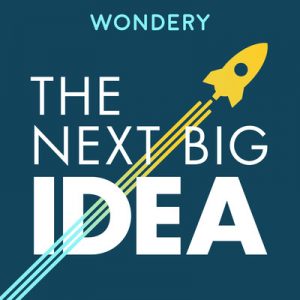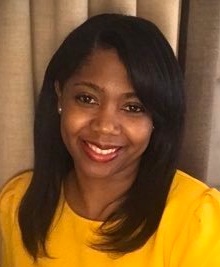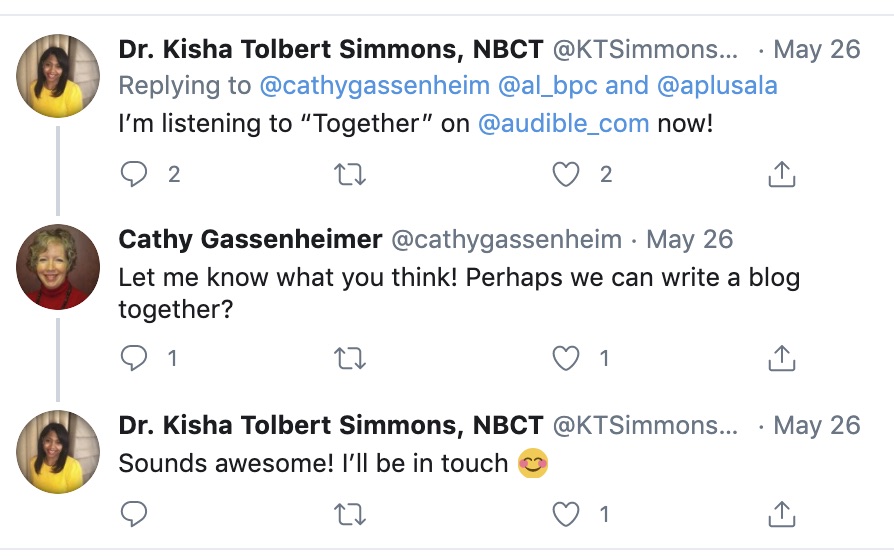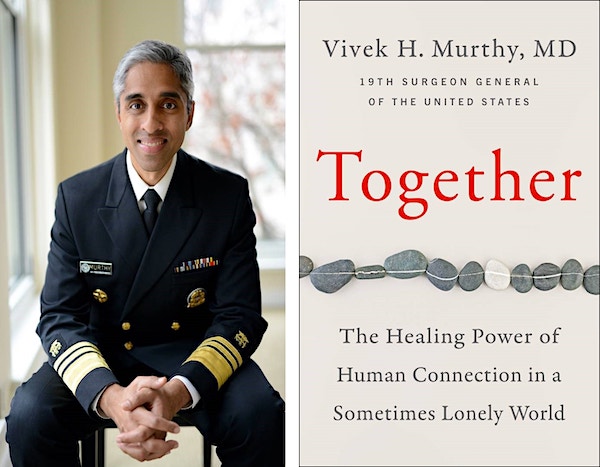This post includes two connected articles by ABPC’s Cathy Gassenheimer and education consultant Dr. Kisha Tolbert Simmons.
I’m a member of the Next Big Idea Club, curated by Daniel Pink, Malcolm Gladwell, Susan Cain, and Adam Grant. Every quarter, I receive a pair of books they’ve curated and that they believe have relevance to the current state of affairs.
A month or so ago, I received the latest two books: Together: The Healing Power of Human Connection in a Sometimes Lonely World, by Vivek Murthy, MD, the 19th U.S. Surgeon General, and Weird: The Power of Being an Outsider in an Insider World, by Olga Khazan.
The book Weird hooked the Texan in me immediately, when the dust cover mentioned that the author, a Russian immigrant, grew up in West Texas. As tempted as I was to read that first, I felt compelled to begin reading Together.
After all, we’re now mostly separated from our friends and work colleagues and wondering when we’ll be able to resume our normal life. Even before Covid-19, many people isolated themselves by excessive use of personal technology. Close your eyes a minute and remember that last time you were in a restaurant. How many people were gazing at their smartphones instead of engaging with those sitting right there with them?
Ironically, sometimes, being connected actually means becoming isolated…and lonely!
Loneliness as an Epidemic
Vivek Murthy served as U.S. Surgeon General under the last administration. Immediately upon taking the job, he embarked on a listening tour across the country. He wanted to learn more about what Americans felt were key health issues.
Much to his surprise, the issue of loneliness was mentioned frequently. He became both concerned and intrigued. As he researched the issue further, he learned of the connection between loneliness and chronic health issues like high blood pressure or diabetes.
As a result, Dr. Murthy made combating loneliness one of his top priorities.
The book depicts what he learned during his time as Surgeon General and afterwards. Murthy is a great story-teller and he makes the book hard to put down. Moreover, his findings really resonated.
 TOGETHER: A Doctor’s Prescription for Health and Happiness
TOGETHER: A Doctor’s Prescription for Health and Happiness
Listen to The Next Big Idea Podcast
When Dr. Vivek Murthy became U.S. Surgeon General in 2014, he went on a listening tour. What he heard surprised him. Americans were lonely, and it was killing them. In this deeply personal conversation with Next Big Idea Club curator Susan Cain (author of “Quiet”), Murthy makes the medical case for love and friendship.
Creating Connections and Making a Difference
How do we address loneliness? We help people connect with others in meaningful ways. And, when that connection involves service, it is even more powerful.
Here’s one of my favorite quotes from the book: “Medicine and technology may fail us at times, but human connection grounded in love and compassion always heals.”
As an example, in the chapter entitled “A Family of Families,” Murthy introduces us to the organization Beyond Differences. The organization was founded by parents of a child with a chronic disease that disfigured her face and eventually killed her. As she grew older, the parents began to see other children isolate their child. She wasn’t bullied. Worse, she was ignored.
After her death, her parents met with her schoolmates and made this discovery: No one thought they were doing anything mean. They just left her out and turned their backs on her.
Today, Beyond Differences has chapters in schools across the country, and offers resources to help address all forms of social isolation faced by children.
Using Our R.U.L.E.R.
Social and Emotional Learning is a focus of our Powerful Conversations Network (PCN). This upcoming school year, we’ll use the book Relationship, Responsibility, and Regulation: Trauma-Invested Practices for Fostering Resilient Learners, by Souers with Hall. So, when Murthy mentioned the Yale Center for Emotional Intelligence, I paid attention.
Murthy detailed the Center’s RULER initiative.
RULER is an acronym:
R = Recognizing emotions
U = Understanding emotions
L = Labeling emotions
E = Expressing emotions
R = Regulating emotions
RULER is not a program but more of an initiative. And, the tools are successfully being used by teachers and classrooms across the country. Key to this initiative is the belief that “emotions matter” and it provides teachers and students with strategies to deal with what they call “feeling words,” that can often open up conversations in a straightforward and powerful way.
I Made My Own Connection
As I read Dr. Murthy’s book, I tweeted “aha’s” that appealed to me, including the quote above. Educators will find a lot to like about the book, particularly the last few chapters.
After one of my first tweets, my friend and colleague Dr. Kisha Tolbert Simmons responded that she, too, was reading Together. I asked her to contribute her insights about the book for this post. Here’s what Dr. Kisha had to say.
There’s No Substitute for Authentic Human Connection
 By Kisha Tolbert Simmons, PhD.
By Kisha Tolbert Simmons, PhD.
Movement restrictions aimed to slow down the spread of COVID19 have brought about a time of connectedness and isolation for many people. As days have turned into weeks and weeks into months, it’s clear that people have experienced similar yet different problems and challenges.
For some, spending more time with household family members was time long overdue. Even so, many found it challenging to spend 24 hours a day, week after week, without much personal time and space. Then there are the single-person households where there wasn’t anyone but them.
Our need for physical distancing also increased people’s reliance on technology as a primary source of communication with those outside of their households. While technology has played a positive role in helping people stay connected, I think we can all agree there is absolutely no substitute for authentic human connection.
We Are Better Together
In Together, Dr. Vivek Murthy presents a case for why we as human beings are better together. Murthy additionally offers four key strategies to prevent loneliness and enhance human connection.
- Spend time each day with those you love,
- Focus on each other,
- Embrace solitude, and
- Help and be helped.
Murthy notes that “culture and traditions affect the quality of loneliness and connectedness by shaping our social expectations.” It has been my experience in educating children from various backgrounds and cultures, that loneliness has too often brought about a badge of shame. The act of simply admitting that one is lonely sets off our educator alarms and an underlying worry about whether the child feels likable or lovable.
As stated throughout Together, loneliness can put one in a psychological state of stress and when prolonged can lead to chronic health issues. In a recent interview at the National Basketball Association website, Dr. Murthy defines loneliness as “a subjective feeling where the connections we need are greater than the connections we have.”
In other words, one can be in the physical presence of others but still feel lonely. Without multiple connections that satisfy our needs, loneliness brings about a feeling of isolation, and one never feels like he/she can be his/her authentic self.
A Sense of Structure
Commenting recently at Healio about the psychological impact of Covid-19 isolation, Dr. Jena Lee, medical director of pediatric emergency psychiatry at UCLA, said that loneliness and anxiety in children can be abated when they have a sense of structure.
“Daily structure is important to everyone, but particularly to children in their psychological and emotional development,” Lee stressed. “The consistency of schedules, predictable rules and consequences, and set expectations teach children how to behave, develop self-discipline and impulse control and, importantly, a sense of safety and control.”
The extent of this challenge, according to Lee, depends on the family’s ability to provide support and structure at home. “Children learn from watching adults, and since they will often be at home together now, they will observe not only what the adults in the home say, but also how they implement structure, ensure consistency and deal with their own emotions.”
“Teaching parents the importance of daily structure and consistency in their responses to their children’s behaviors is a priority.”
In the same article, and related to older children and adult caregivers, sociologist Dr. Louise Hawkley of the National Opinion Research Center at the University of Chicago, notes that “research has shown that loneliness increases risk for depression and anxiety and heightens feelings of stress — factors that contribute to worsening physical health and poor health behaviors, including substance abuse, poor nutrition and more sedentariness, as well as poor sleep quality.”
The Healing Power of Connection
To build a more connected life, one must start by:
- Connecting with Self — Noticing your feelings, naming your feelings, accepting your thoughts and feelings, engaging in enjoyable solo activities and practicing self-compassion is just the beginning.
- Being a Part of a Community — “No one person can accomplish anything alone. Everyone must work together and support one another to achieve something great.” ~ Isaac Newton. Community is what unites us. Community gives us opportunities to connect. Community is where we have opportunities to help and be helped. Community cultivate an environment of safety and security.
- Teaching Future Generations — “Let the future say of our generation that we sent forth mighty currents of hope and that we worked together to heal the world.” ~Jefferey Sachs
In these pandemic months, spending time learning about the dynamics of loneliness and connectedness helps us better serve our students, families and communities. It’s part of the lifelong mission of educators to not only teach but to heal through the power of authentic human connections.
References
► The Q&A: Dr. Vivek Murthy on fighting loneliness during COVID-19 pandemic. (NBA.com)
Kisha Tolbert Simmons, Ph.D., NBCT is the founder and lead consultant of ConnectME Consulting Group. Kisha has spent the past 17 years serving teachers and leaders across the nation in the areas of educator growth & effectiveness, strategic planning & implementation and curriculum planning & instructional design.
She has been an elementary educator, instructional coach, K12 Instructional Partner, SDE consultant, and adjunct professor. She’s is a National Board Certified Teacher (Early and Middle Childhood Literacy – renewed 2017) and board member for both STAIR Birmingham and ACT State Organizations (Alabama). Follow Dr. Kisha on Twitter @KTSimmons4AU.




0 Comments on "Together: Cathy and Kisha Reflect on the Healing Power of Human Connection"